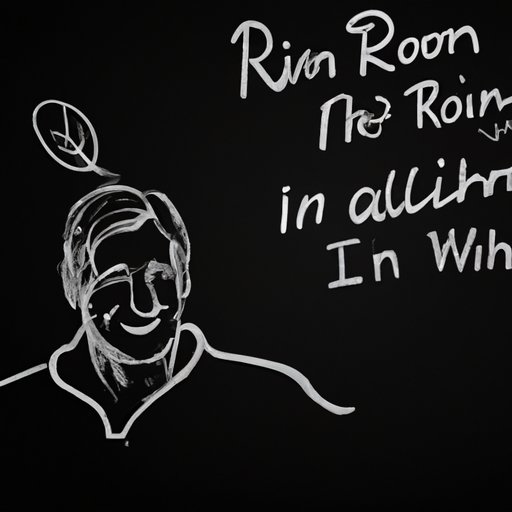
Robin Williams’ Battle with Lewy Body Dementia: A Story of Mental Health and Creativity
Robin Williams was a beloved comedic actor and cultural icon, known for his high energy, rapid-fire humor and quick wit. His career spanned decades, and he brought joy and laughter to millions of people around the world. However, behind the scenes, Williams struggled with mental health and substance abuse issues, which ultimately led to his tragic death in 2014. In this article, we will explore the disease that Robin Williams suffered from – Lewy body dementia – and its impact on his life and legacy. We will also examine the societal stigmas surrounding mental illness and chronic illnesses, and the need for greater awareness and empathy.
Robin Williams’ Battle with Lewy Body Dementia
Lewy body dementia is a type of progressive dementia that affects thinking, movement, behavior, and mood. It is caused by the buildup of abnormal protein deposits in the brain, which can lead to a decline in mental function and physical ability. People with Lewy body dementia often experience hallucinations, movement disorders, and sleep disturbances.
Robin Williams was diagnosed with Lewy body dementia after his death, which was initially thought to be caused by suicide. However, the autopsy revealed that Williams had a severe case of Lewy body dementia, which likely contributed to his suicide. Before his diagnosis, Williams had been experiencing a range of symptoms, including anxiety, depression, and insomnia. He also had difficulty remembering his lines and was struggling with his motor skills.
Treatment options for Lewy body dementia are limited, and there is currently no cure for the disease. Medications can help manage some of the symptoms, but they often come with side effects and do not slow the progression of the disease. People with Lewy body dementia require specialized care, which can be challenging for family members and caregivers.
The impact of Lewy body dementia on individuals and families can be devastating. It is a disease that is not well-known or understood, which can lead to isolation and shame. People with Lewy body dementia often feel misunderstood and unsupported, which can exacerbate their symptoms and decrease their quality of life.
Robin Williams’ Legacy and Impact on Mental Health Conversations
Robin Williams’ public suicide was a wake-up call for many people, shedding light on the importance of mental health and the devastating impact of suicide. His death sparked a national conversation about mental health and the stigmas surrounding mental illness.
Societal stigmas surrounding mental illness and substance abuse can prevent individuals from seeking help and support. People with mental health and substance abuse issues are often labeled as weak or lazy, which can lead to shame and isolation. Robin Williams’ death highlighted the need for greater awareness and empathy towards those struggling with mental health and substance abuse issues.
Societal Stigmas Surrounding Chronic Illnesses
Chronic illnesses, including dementia, are often associated with old age and decline. However, chronic illnesses can affect anyone, regardless of age or background. The societal stigmas surrounding chronic illnesses can be particularly challenging for individuals and families, who may feel shame or embarrassment about their condition.
Education and empathy are crucial in addressing and combating these stigmas. Greater awareness of chronic illnesses can lead to better understanding and support for those impacted by these conditions.
Tribute to Robin Williams’ Life and Career
Despite his struggles with mental health and substance abuse, Robin Williams brought joy and laughter to millions of people around the world. He was a gifted performer, known for his improvisational skills and magnetic personality. His charitable work, including his support for St. Jude Children’s Research Hospital and the Christopher and Dana Reeve Foundation, also showcased his generosity and compassion.
Robin Williams’ legacy continues to live on through his work, which has inspired and impacted countless individuals and communities.
Creativity and Mental Illness
The relationship between creativity and mental illness is complex and multifaceted. Many creative individuals have struggled with mental health and substance abuse issues, including Robin Williams. The pressures of the entertainment industry, combined with the personal challenges that many creative individuals face, can create a perfect storm for mental health challenges.
However, mental illness and substance abuse are not prerequisites for creativity. Many creative individuals thrive and succeed without struggling with these issues. It is important to recognize the impact of mental health and substance abuse on creative individuals while also acknowledging the many successful and flourishing creative individuals who do not struggle with these issues.
Conclusion
Robin Williams’ battle with Lewy body dementia highlights the need for greater awareness and empathy towards those coping with chronic illnesses and mental health challenges. The societal stigmas surrounding these issues can be harmful and isolating, perpetuating a cycle of shame and misunderstanding. By working to increase education and understanding, we can help support those impacted by these conditions and break down these stigmas.
Robin Williams’ legacy and impact are a testament to the power of creativity and the importance of addressing mental health and substance abuse issues. Let us honor his memory by continuing to work towards greater understanding and support.


